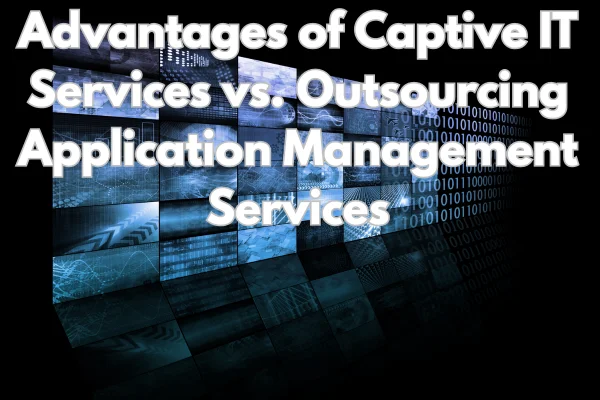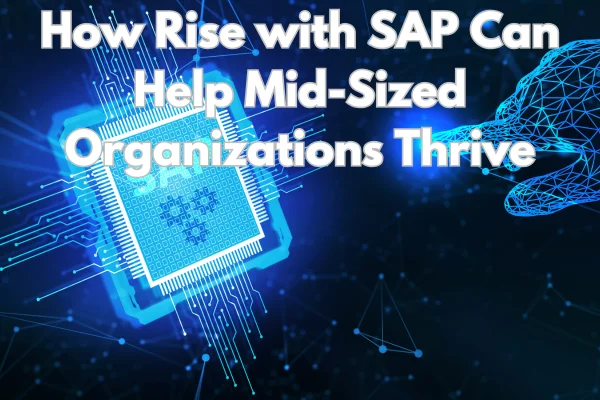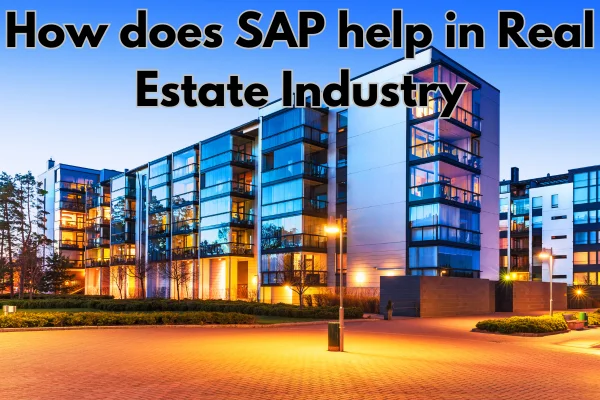In today's digital age, a strong online presence is essential for businesses to thrive and reach their target audience effectively. One crucial aspect of establishing this online presence is website development. However, determining the cost of website development can be a daunting task, especially with the vast array of options available in the market. This comprehensive breakdown aims to shed light on the pricing factors and industry standards of website development costs in India. With its booming IT industry and a pool of talented professionals, India has emerged as a favored destination for website development outsourcing. From understanding the different types of websites and their functionalities to exploring the various pricing models and factors that influence costs, this guide will equip you with the knowledge to make informed decisions. Whether you're a small business owner or an entrepreneur looking to revamp your online presence, join us as we delve into the world of website development costs in India.
Factors that Influence Website Development Costs
Website development costs can vary significantly based on several factors. Understanding these factors is crucial to determine the budget required for your project. The complexity of the design, the number of pages, the level of customization, and the integration of advanced features all play a role in the final cost. Additionally, the experience and expertise of the development team, the project timeline, and the level of support required after the website launch can also impact the overall cost. By analyzing these factors, you can better estimate the expenses involved and plan your website development budget accordingly.
The complexity of the design is one of the primary factors that influence website development costs. A simple, minimalist design with fewer elements and functionalities will generally be more affordable than a complex design with intricate graphics and interactive features. The number of pages required for your website also affects the cost, as each page needs to be designed and developed individually. It's important to consider the purpose and goals of your website to determine the optimal number of pages needed.
Customization is another factor that can significantly impact the cost of website development. Tailoring the design and features to match your specific requirements often involves additional time and effort from the development team. If you have unique functionality or specific branding guidelines, it's essential to communicate these to the developers to ensure accurate cost estimates.
The integration of advanced features, such as e-commerce functionality, payment gateways, or third-party integrations, can also affect the overall cost. These features require additional development work and may involve licensing fees or ongoing maintenance costs. It's crucial to evaluate the necessity and benefits of these features to make informed decisions.
Types of Websites and Their Associated Costs
Websites come in various types, each serving different purposes and catering to specific needs. The type of website you require will have a direct impact on the associated costs. Let's explore some common types of websites and the estimated costs involved.
1. **Static Websites**: Static websites are the most basic type and are suitable for businesses that require a simple online presence. These websites are built using HTML and CSS, do not have any dynamic content, and are relatively easy to develop. The cost for a static website can range from $500 to $2000, depending on the number of pages and the complexity of the design.
2. **Dynamic Websites**: Dynamic websites have more advanced functionalities and can adapt to user interactions. They are built using server-side scripting languages such as PHP or ASP.NET and often include features like content management systems (CMS), user registration, and database integration. The cost for a dynamic website can range from $2000 to $8000, depending on the complexity and customization required.
3. **E-commerce Websites**: E-commerce websites are designed for online selling and require robust features such as product catalogs, shopping carts, and secure payment gateways. These websites are more complex to develop and often involve ongoing maintenance and security considerations. The cost for an e-commerce website can range from $5000 to $20,000, depending on the number of products, payment integrations, and customization requirements.
4. **Custom Web Applications**: Custom web applications are built specifically to address unique business needs and require extensive development work. These applications often involve complex functionalities, user interfaces, and integrations with other systems. The cost for a custom web application can vary significantly based on the scope and complexity of the project, ranging from $10,000 to $100,000 or more.
5. **Responsive and Mobile-Friendly Websites**: With the increasing use of mobile devices, having a responsive and mobile-friendly website has become a necessity. These websites adapt to different screen sizes and provide optimal user experiences across devices. The additional cost for making a website responsive and mobile-friendly can range from $1000 to $5000, depending on the complexity of the design and the level of optimization required.
Understanding the Different Pricing Models in Website Development
When it comes to website development, various pricing models are prevalent in the industry. Understanding these models can help you choose the most suitable option for your project and avoid any surprises in terms of costs. Let's explore some common pricing models used by website development agencies.
1. **Fixed Price Model**: In the fixed price model, the development agency provides a fixed quote for the entire project, considering all the requirements and deliverables. This model is suitable for well-defined projects with clear objectives and specifications. The advantage of this model is that you know the exact cost upfront, making it easier to plan your budget. However, any additional features or changes requested during the development process may incur extra charges.
2. **Time and Material Model**: In the time and material model, the cost is based on the actual time and resources spent on the project. This model is more flexible and suitable for projects with evolving requirements or those that require frequent changes. You pay for the actual hours worked and any additional resources used. The advantage of this model is that it allows for more flexibility and accommodates changes more easily. However, the final cost may not be known until the project is completed, making budgeting more challenging.
3. **Dedicated Development Team**: In the dedicated development team model, you hire a dedicated team of developers who work exclusively on your project. This model is suitable for long-term projects or those that require ongoing maintenance and support. The cost is typically based on a monthly fee for the dedicated team members. The advantage of this model is that you have more control and flexibility over the development process. However, it may not be the most cost-effective option for small or short-term projects.
Industry Standards for Website Development Costs in India
India has gained a reputation as a preferred destination for website development outsourcing due to its skilled workforce and cost-effective solutions. The website development costs in India are generally lower compared to other countries, making it an attractive option for businesses worldwide. However, it's important to note that the actual costs can vary based on several factors, including the complexity of the project, the location of the development agency, and the level of expertise required.
As a general guideline, the starting cost for a basic website in India can range from $500 to $2000. The cost for a more advanced dynamic website can range from $2000 to $8000, while an e-commerce website can cost anywhere from $5000 to $20,000 or more. Custom web applications can start from $10,000 and go up to $100,000 or higher, depending on the complexity and scope of the project.
It's worth mentioning that these are rough estimates, and it's advisable to obtain quotes from multiple development agencies to compare prices and services. It's also essential to consider the quality of work, the track record of the agency, and the level of support provided when making a decision. While cost is an important factor, it should not be the sole determining factor when choosing a website development agency in India.
Additional Costs to Consider in Website Development
In addition to the upfront development costs, there are several other expenses to consider when budgeting for website development. These costs may vary depending on the specific requirements of your project, but it's important to be aware of them to avoid any surprises later on. Let's explore some common additional costs associated with website development.
1. **Domain and Hosting**: Registering a domain name and purchasing hosting services are essential for launching a website. The cost for a domain name can range from $10 to $50 per year, depending on the extension (.com, .in, .org, etc.), while hosting services can cost anywhere from $50 to $500 per year, depending on the provider and the level of resources required.
2. **Content Creation**: High-quality content is crucial for engaging visitors and driving conversions. If you don't have the resources or expertise to create content yourself, you may need to hire a professional copywriter or content agency. The cost for content creation can vary based on the scope and complexity of the project, ranging from $500 to $5000 or more.
3. **SEO and Digital Marketing**: Once your website is live, it's important to invest in SEO and digital marketing to drive traffic and increase visibility. This can involve keyword research, on-page optimization, link building, and paid advertising. The cost for SEO and digital marketing services can vary based on the level of competition and the desired outcomes, ranging from $500 to $5000 or more per month.
4. **Security and Maintenance**: Regular security updates, backups, and maintenance are essential to keep your website secure and functioning optimally. It's important to consider the ongoing costs for security measures, software updates, and regular maintenance when budgeting for website development. The cost for security and maintenance services can range from $50 to $500 per month, depending on the complexity of the website and the level of support required.
Tips for Budgeting and Negotiating Website Development Costs
Budgeting for website development can be a challenging task, but with careful planning and negotiation, you can optimize your costs without compromising on quality. Here are some tips to help you budget and negotiate website development costs effectively.
1. **Define Your Requirements**: Clearly define your project requirements and objectives to avoid any misunderstandings or scope creep. This will help the development agency provide accurate quotes and prevent any unexpected costs later on.
2. **Obtain Multiple Quotes**: Request quotes from multiple website development agencies to compare prices and services. This will give you a better understanding of the market rates and help you negotiate a competitive price.
3. **Consider the Agency's Experience**: Look for an agency with relevant experience in your industry or with similar projects. A skilled and experienced team can deliver better results and provide valuable insights throughout the development process.
4. **Negotiate Scope and Deliverables**: Discuss the scope of work and deliverables with the development agency to ensure alignment. Negotiate any additional features or changes upfront to avoid unexpected costs during the development process.
5. **Ask for a Detailed Breakdown**: Request a detailed breakdown of costs, including hourly rates, estimated hours, and any additional expenses. This will help you understand how the costs are calculated and identify any areas where you can optimize or negotiate.
6. **Consider Long-Term Costs**: Consider the long-term costs of website maintenance, security, and updates. It's important to factor in these ongoing expenses when budgeting for website development to ensure the sustainability and performance of your website.
Website Maintenance and Ongoing Costs
Website development is not a one-time expense; it requires regular maintenance and updates to ensure optimal performance and security. Neglecting website maintenance can lead to security vulnerabilities, performance issues, and a poor user experience. Here are some essential website maintenance tasks and their associated costs.
1. **Software Updates**: Regularly updating the website's software, including the content management system (CMS), plugins, and themes, is crucial to address security vulnerabilities and ensure compatibility with the latest technologies. The cost for software updates can range from $50 to $200 per month, depending on the complexity of the website and the number of updates required.
2. **Security Measures**: Implementing security measures such as firewalls, SSL certificates, and malware scanning is essential to protect your website and customer data. The cost for security measures can range from $50 to $200 per month, depending on the level of protection required and the size of the website.
3. **Content Updates**: Keeping your website's content fresh and up-to-date is important for engaging visitors and maintaining search engine rankings. Depending on the frequency and complexity of content updates, you may need to allocate resources or hire a content management team. The cost for content updates can range from $100 to $500 per month, depending on the volume and complexity of the updates.
4. **Performance Optimization**: Optimizing website performance, including page load speed and mobile responsiveness, is crucial for user experience and search engine rankings. This may involve regular monitoring, performance audits, and optimization techniques. The cost for performance optimization can range from $100 to $500 per month, depending on the complexity of the website and the level of optimization required.
Choosing the Right Website Development Agency in India
Choosing the right website development agency in India is a crucial step in ensuring the success of your project. With the abundance of options available, it's important to consider several factors before making a decision. Here are some key considerations when selecting a website development agency in India.
1. **Portfolio and Track Record**: Review the agency's portfolio and track record to assess the quality of their work and their experience in handling similar projects. Look for testimonials or case studies to get an idea of their capabilities and client satisfaction.
2. **Expertise and Skills**: Evaluate the expertise and skills of the development team. Look for agencies that have experience with the latest technologies, frameworks, and development practices. A skilled team can deliver better results and provide valuable insights throughout the development process.
3. **Communication and Support**: Effective communication and ongoing support are vital for a successful website development project. Ensure that the agency has clear communication channels and provides timely responses to your queries. Consider their level of support before, during, and after the project is completed.
4. **Price and Value**: While cost is an important factor, it should not be the sole determining factor. Consider the value provided by the agency in terms of quality, expertise, and support. Look for a balance between affordability and the ability to meet your project requirements.
5. **Reviews and Reputation**: Research the agency's reviews and reputation online. Look for feedback from past clients to get an unbiased opinion about their services. Consider their overall reputation in the industry and their ability to deliver projects on time and within budget.

 English
English














